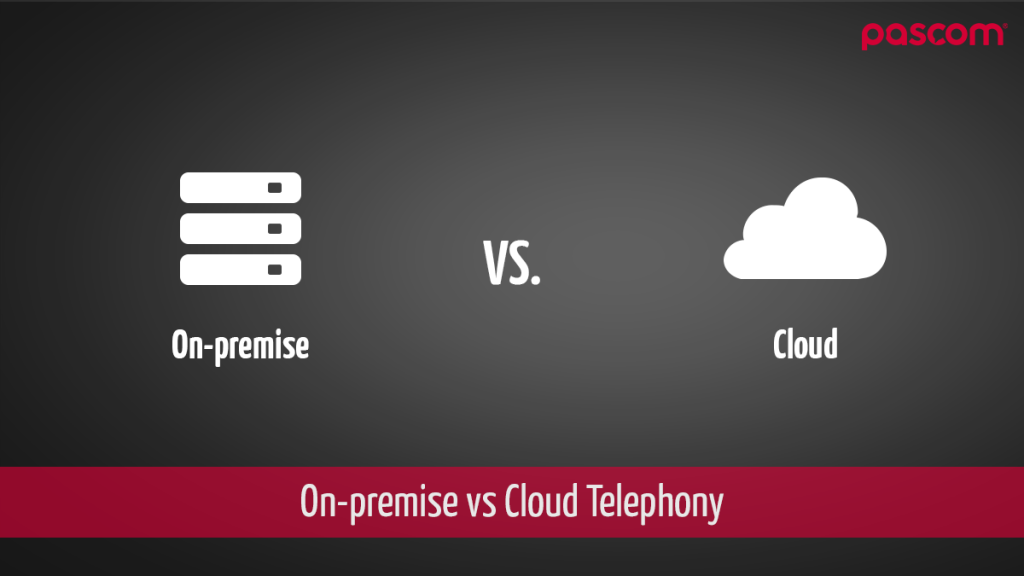Voice over Internet Protocol (VoIP) has transformed business communication by offering flexible, scalable, and cost-efficient alternatives to traditional phone systems. However, once you’ve decided to adopt VoIP solutions, a huge question is: Should you set up on-premise or go with a cloud-based form?
Both deployment models have their advantages, and which model suits one particular organization depends on its requirements, size, budget, and long-term IT strategy. The purpose of this blog is to elucidate the main differences between on-premise VoIP and cloud-based VoIP to help with that decision.
What is On-Premise
All voice-calling systems-from the Private Branch Exchange (PBX) to the call servers and all necessary hardware-are referred to as on-premise VoIP systems, as they are hosted at the customer’s premises, generally within the server room or data center. Everything, including installation, maintenance, upgrades, and security-related concerns, is managed by the IT department.
What is Cloud-Based VoIP
Also, called VoIP-as-a-Service (or hosted VoIP), here the entire communications infrastructure is leveraged off the premises. Thus the phone system is run on third-party providers in a cloud environment and accessed by users at their workplaces through internet connections using IP phones, mobile apps, or softphones.
Head-to-Head Comparison
First, compare the both options according to certain key decision making criteria for their utilization: on-premises and cloud.
1. Cost structure
On-premises:
Heavily CAPEX-heavy, with upfront cost on hardware, servers, licenses and installation. Ongoing maintenance costs, upgrade costs, IT staff.
Cloud-based:
- Op-ex friendly: Subscription pricing means low initial expenses.
- Maintenance, updates, and support are managed by providers.
Best Suited:
These are the small and medium businesses and start-ups that prefer limiting their capital expenditures upfront by going into the cloud solution; larger enterprises with what they have set as infrastructure currently might also enjoy being on-premises.
2. Scalability
On-premises:
Future scaling will entail costs comprising the purchase of other hardware, licenses for software, and reconfiguration of the systems themselves. Thus, it becomes unsuitable for fast-developing or seasonal businesses.
Cloud:
New users and phone lines may be added and removed instantaneously. A fabulous pick for teams that is dispersed and hybrid.
Best fit:
Any business hoping to develop, or any business with some remote/hybrid teams, should find cloud VoIP more nimble.
3. Control and Customisation
On-Premises:
Businesses are given total control to configure the system, integrations, and security settings as they wish. Most suitable for companies having specialised engineering needs.
Cloud-Based:
Limited customisation per provider. Common interfaces and integrations are available.
Best Fit:
Preferred by on-premises enterprises with dedicated IT teams and strict compliance requirements, as it offers more control.
4. Maintenance and Support
On-Premise:
- Your IT team will manage everything, including system health, troubleshooting, backup, and security.
- Custom support processes can be defined.
Cloud-Based:
- Maintenance service comes at no additional charge.
- Automatic updates and patches.
Best for:
Cloud VoIP would best suit organisations with limited IT resources or those that want a hands-off approach.
5. Mobility and Remote Work
On-premises:
To make a seamless remote and mobility connection Is not that easy.
Possible through VPN or other custom-made configurations.
Cloud-Based:
Truly most suited for mobility. Can connect anywhere through softphones, mobile apps, or IP phones.
Best for:
Significant advantages of cloud VoIP for hybrid or remote teams.
Conclusion
VoIP challenges the premise of uniformity. Each VoIP solution is to be evaluated against the size, technological capability, financial capacity, and communication priority of your business.
Of cloud VoIP advantages and disadvantages, the far more accessible version seems to be tailored to micro and small businesses and growing enterprises.
On-premise VoIP may be what larger firms or regulatory agencies need in terms of control and customisation.
Ultimately, digital communication is the future, and VoIP will place your company strategically for competition, connection, and resilience-perhaps cloud-based or on-premise.

